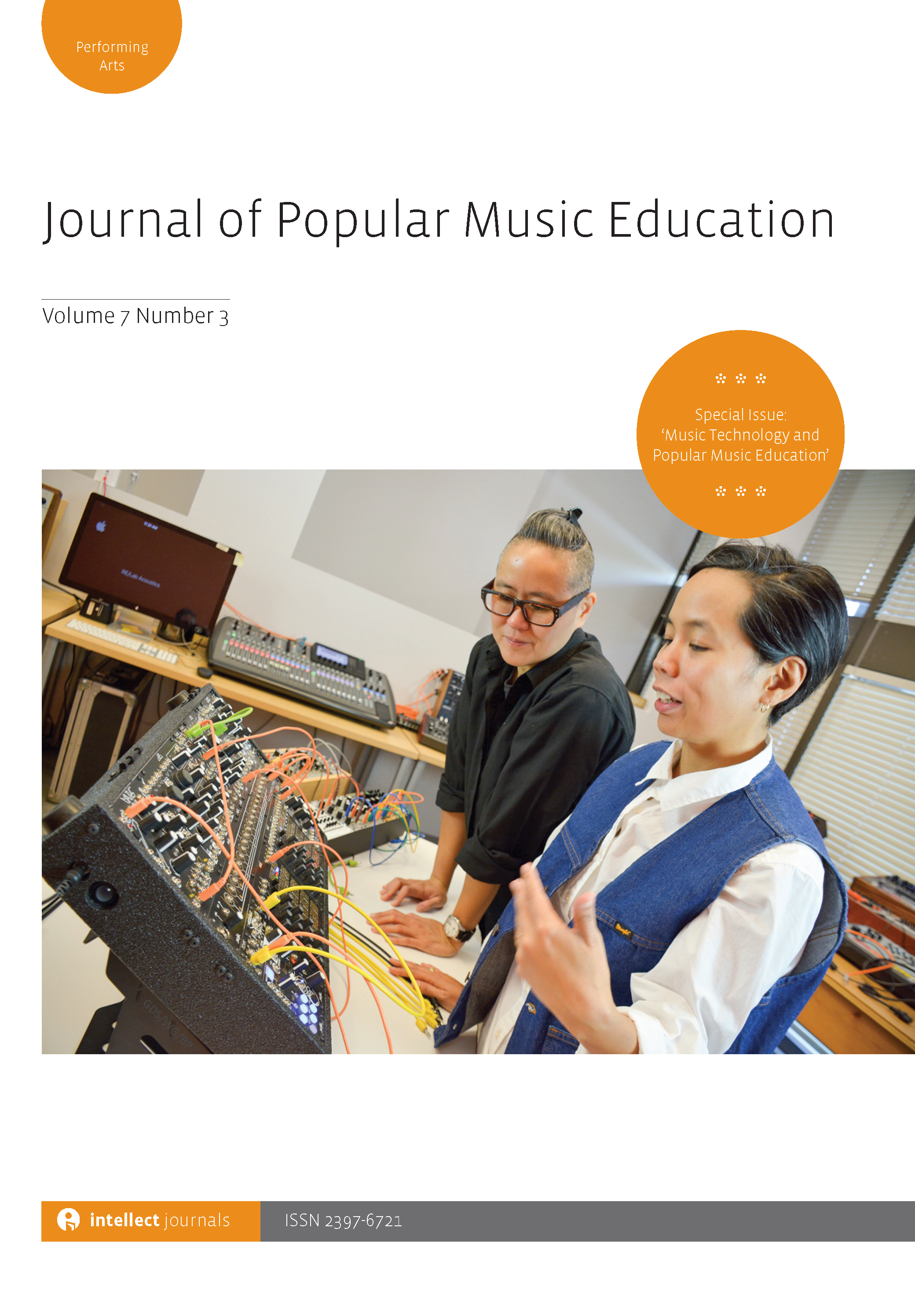-
f The longer revolution: The rise of vernacular musics as ‘new channels of general learning’
- Source: Journal of Popular Music Education, Volume 1, Issue 1, Mar 2017, p. 9 - 24
-
- 01 Mar 2017
Abstract
This article takes as its point of origin an extract from Apple’s (2013) book Can Education Change Society? Beginning with the concept of ‘radical democratic egalitarianism’ the author examines the extent to which many current models of music education meet the criteria for ‘robust egalitarianism’ with reference to their inclusion of popular culture. With reference to Williams’ (1961) seminal work in cultural studies The Long Revolution, consideration is given to the extent to which progress towards cultural, musical democracy has been made in music education. These considerations are juxtaposed against the thought of key sociological theorists Apple; E. O. Wright; Bourdieu; Marx and Engels; and Day. The article then discusses research in the area of youth and popular music and surveys international approaches to popular music education. Finally the article turns to pedagogical considerations in relation to popular music. Utilizing Bennett’s (2000) assessment of popular music as one of the primary cultural resources of contemporary social life for young people, an analogy is drawn between Williams’ heralding of the democratic benefits of the introduction of vernacular language as the new channel of general instruction and the possibilities of extending popular music as the new channel of general musical learning. It is suggested that such a change might move the Long Revolution forward in music education and in the cultural lives of young people.


